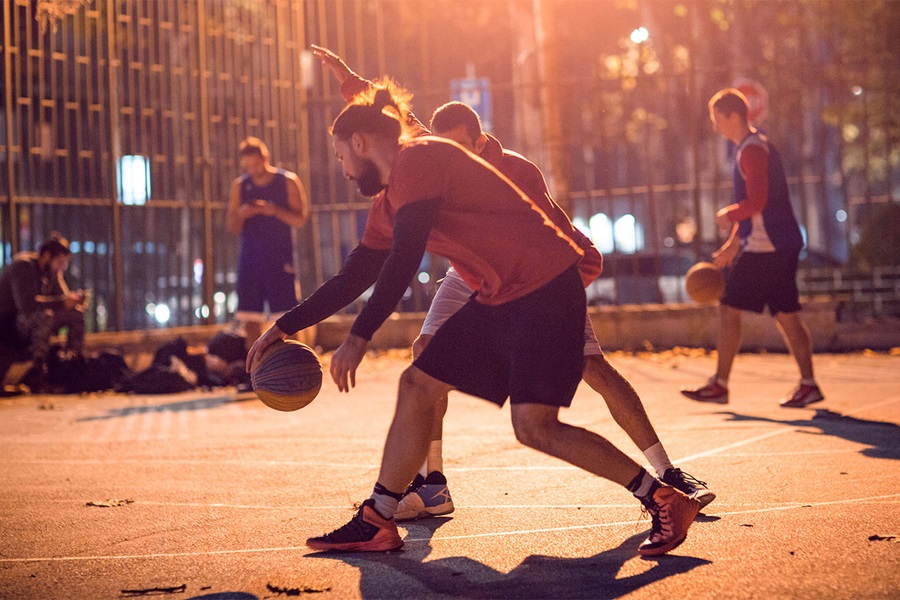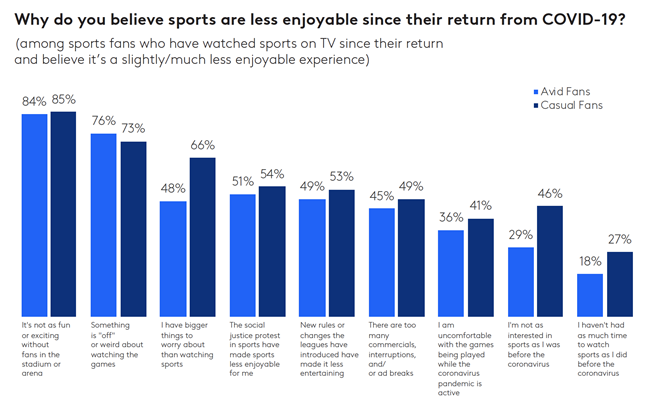Television ratings for the first round of NBA playoff games were down 30% compared with last year. The US Open tennis tournament’s ratings dropped by nearly half compared to 2019. And in a marquee matchup featuring the reigning MVP and the defending Super Bowl champions in the country’s most popular sport, the NFL’s ratings for its opening night were down 12% compared with last year’s opener. All this raises the question: Are the social justice protests that have become so prominent in sports to blame for underwhelming TV ratings?
The answer isn't as straightforward as political partisans might lead one to believe. For one, seasonality effects and a glut of sports telecasts due to COVID-19 are factors in certain sports' television ratings declines. Context matters, too: The NFL's "disappointing" opening night performance still drew 19.3 million viewers, the largest televised audience since February's Academy Awards telecast. And, according to an analysis by media rights consultant Patrick Crakes, while most individual sports ratings are down, overall consumption of sports was up between 100% and 150% as of August due to the increase in available programming options in today’s marketplace.
Yet, despite these complicating factors, the "get woke, go broke" story line is likely to gain traction as the nation turns its attention to November’s election. According to Kantar Sports MONITOR's August 2020 survey of 2,500 fans, while social justice protests are a key factor in turning off some predominantly older, white (non-Hispanic) fans, it’s far from the top reason some find televised sports less enjoyable. In fact, among fans who have watched televised sports since its return (68%) and who found them either slightly or much less enjoyable than before the coronavirus arrived in the U.S. (64%), social justice protests ranked in the middle-of-the-pack of reasons why, with far more fans citing other of-the-moment factor such as "it's not as fun or exciting without fans," "something is 'off' or weird about watching the games," and "I have bigger things to worry about than watching sports."
The takeaway...
The media often focuses on flashier, conflict-laden reasons behind TV’s ratings dips, but a more accurate explanation is that they’re driven by perceived declines in the current, pandemic-era viewing experience than by social justice reservations. Sports broadcasters and leagues looking to bolster engagement would be better served exploring ways to compensate for the "off" or "weird" viewing experience in a fan-less environment than attempting to quell a social movement with widespread support among athletes and the majority of younger Gen Z and Millennial fans.
To learn more about Sports MONITOR please complete the form below.


